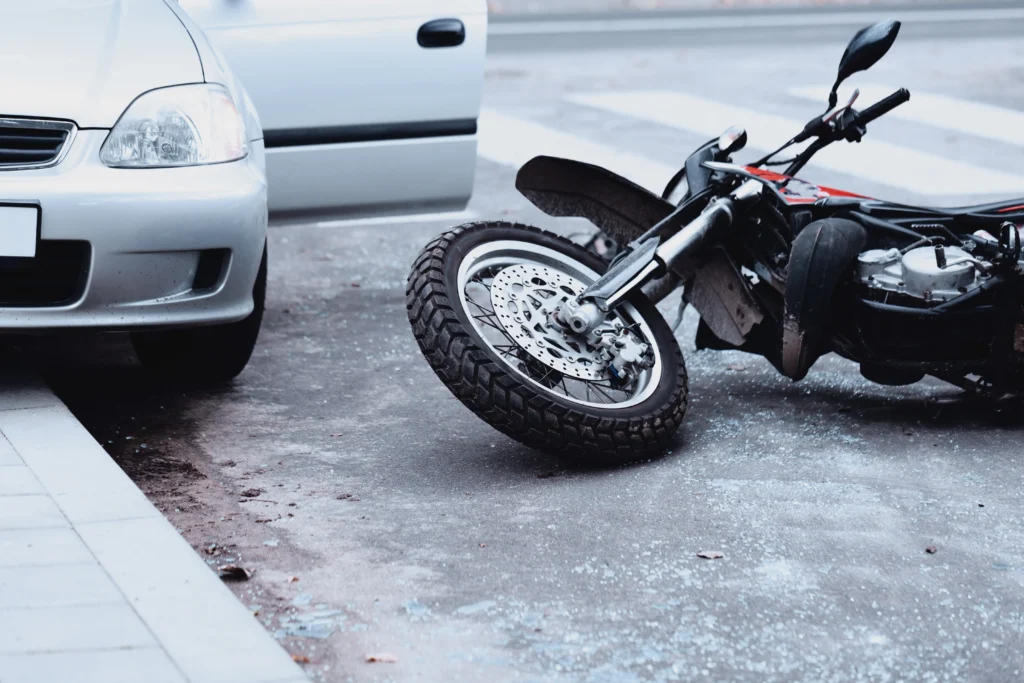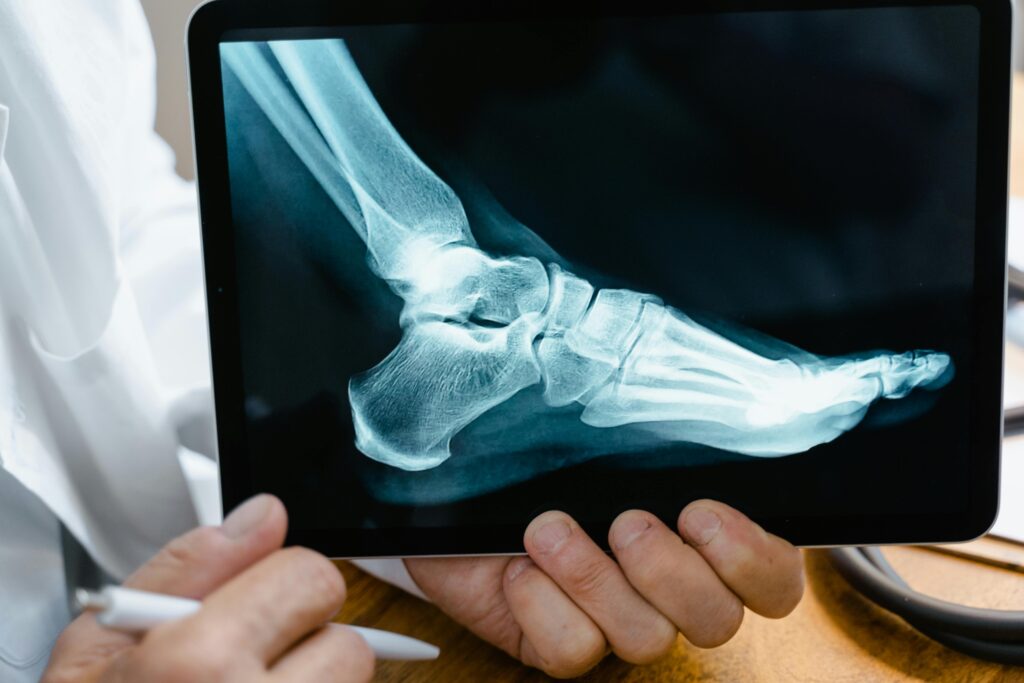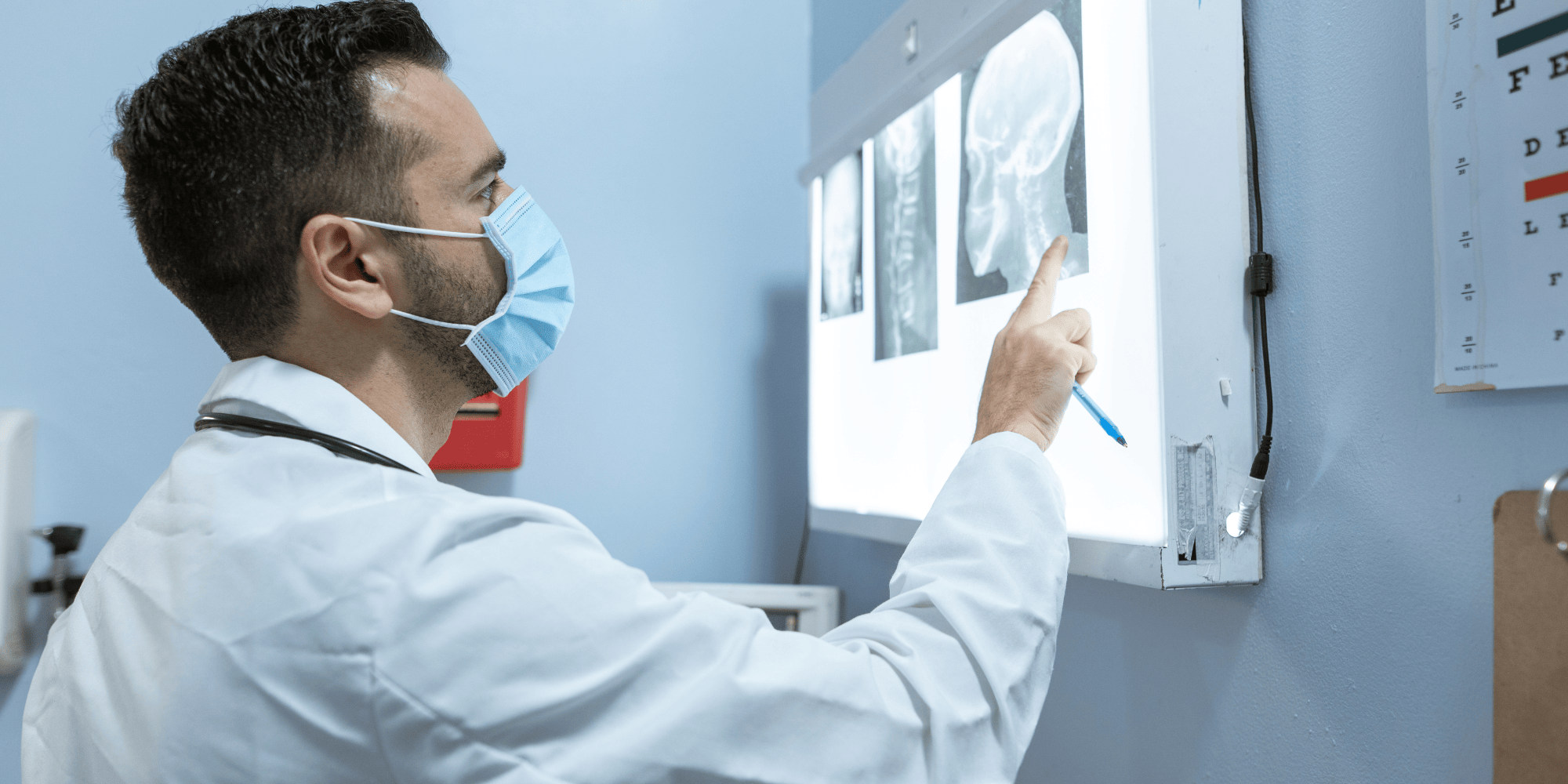What to Know About Traumatic Brain Injuries in Colorado Springs
A traumatic brain injury (TBI) can change a person’s life in an instant. In Colorado Springs, these injuries often result from serious car crashes on I-25, motorcycle accidents near Powers Boulevard, or falls on unsafe premises throughout the city. Whether caused by a high-speed collision or a violent blow to the head, a Traumatic Brain Injury can lead to permanent cognitive, physical, and emotional impairments that affect every aspect of a victim’s daily life.
At the Law Office of Jordan S. Levine, we help clients in Colorado Springs pursue justice and financial recovery after suffering traumatic brain injuries due to another party’s negligence. We understand how overwhelming it can be to face mounting medical bills, lost income, and long-term care needs while trying to heal. That’s why our legal team fights to hold the at-fault parties accountable and maximize compensation for our clients.
If you or someone you love has suffered a traumatic brain injury in Colorado Springs, don’t wait to take legal action. Call (303) 835-4910 or visit our contact page to schedule a free consultation. Let us help you move forward with confidence and the legal support you deserve.
How a Traumatic Brain Injury Occur in Colorado Springs
Traumatic brain injuries (TBIs) happen in a split second, but their impact can last a lifetime. In Colorado Springs, residents face a wide range of risk factors from high-speed collisions on urban highways to falls on icy sidewalks and accidents on rugged trails. Understanding how TBIs happen helps injury victims, family members, and attorneys build a strong case for liability and damages.
Car Accidents Are a Leading Cause of TBIs
Motor vehicle accidents consistently rank among the top causes of traumatic brain injuries across Colorado. In Colorado Springs, traffic congestion on roads like I-25, Powers Boulevard, and Academy Boulevard increases the risk of serious crashes, particularly during winter or rush-hour conditions.
Head Trauma From Rear-End and Side-Impact Collisions
Even a seemingly minor rear-end crash can cause the brain to jolt within the skull, leading to concussions or more serious injuries. T-bone and rollover crashes frequently cause the driver or passengers to strike their heads against hard surfaces inside the vehicle, resulting in severe brain trauma.
According to the Centers for Disease Control and Prevention (CDC), motor vehicle crashes are responsible for 24% of all TBI-related hospitalizations in the United States. Learn more about the CDC’s findings on motor vehicle–related TBIs.
Dangerous Intersections and High-Speed Zones
Intersections such as Constitution Avenue and Powers Boulevard, or Austin Bluffs Parkway and Academy Boulevard, are hotspots for serious collisions that can cause life-altering head injuries. Speeding, red-light running, and failure to yield are common crash factors that contribute to these violent impacts.
Motorcycle and Bicycle Accidents Cause Severe TBIs
Motorcyclists and cyclists face extreme vulnerability during collisions. With no protective frame, even a low-speed crash can result in the rider being thrown from the vehicle and striking their head on the pavement or another object.
Helmet Use Reduces Risk, But Not Elimination
Helmets are crucial in reducing the severity of traumatic brain injuries, but they cannot fully eliminate the danger. A rider wearing a helmet can still suffer a concussion, brain bleed, or skull fracture, depending on the force and direction of impact.
The National Highway Traffic Safety Administration (NHTSA) emphasizes that helmets reduce the risk of head injury by 69% and the risk of death by 37%. For more data on helmet effectiveness, visit the NHTSA Motorcycle Safety page.
High-Risk Roads for Riders
Areas like Garden of the Gods Road, Research Parkway, and Highway 24 through Ute Pass pose serious hazards for motorcyclists and cyclists due to steep grades, tight curves, and fast-moving traffic. Drivers often fail to see or properly yield to riders in these areas, increasing the likelihood of head injuries during impact.
Falls on Unsafe Property Frequently Cause Brain Injuries
Falls are another leading cause of traumatic brain injuries, especially for children and older adults. These incidents frequently happen on icy stairs, broken sidewalks, slick floors, or poorly lit walkways.
Premises Liability and Fall-Related TBIs
When a property owner or business fails to maintain safe walking conditions or ignores known hazards, they may be held liable for resulting injuries. Colorado Springs experiences dramatic shifts in weather, and if a store, apartment complex, or public facility does not clear snow and ice promptly, it may be legally responsible for fall-related TBIs.
The CDC reports that falls account for nearly half of all TBI-related hospitalizations, particularly among those aged 65 and older. See their full statistics on fall-related brain injuries.
Local Risk Zones for Fall Injuries
Shopping centers like The Citadel Mall, downtown office buildings, and apartment complexes in Briargate and Southeast Colorado Springs are frequent sites of fall-related brain injuries due to high foot traffic and inconsistent maintenance.
Sports, Military, and Outdoor Accidents Also Contribute to TBIs
Recreational activities and contact sports pose additional risks for head injuries, especially in a city like Colorado Springs, where outdoor adventure is part of daily life.
TBIs in High School and Military Training
Local high school athletes, particularly football and hockey players, face a high risk of repeated concussions and sub-concussive impacts. Likewise, military personnel training at Fort Carson or the U.S. Air Force Academy may suffer traumatic brain injuries during drills, combat simulations, or equipment accidents. TBIs are one of the most common injuries among service members, and the Department of Defense actively tracks and researches TBI trends through the Defense and Veterans Brain Injury Center (DVBIC).
Outdoor Falls and Trail Accidents
Hiking and mountain biking accidents in areas like Red Rock Canyon, Cheyenne Mountain State Park, or North Cheyenne Cañon frequently result in falls that can cause concussions or skull fractures. Uneven terrain, loose gravel, or elevation changes increase the risk of head injuries, especially when hikers or bikers lose control or fall from height.
Assault and Physical Violence Can Cause TBIs
Blunt force trauma from physical violence is a less frequent but equally serious cause of traumatic brain injuries in Colorado Springs. Victims of assault, domestic violence, or bar fights may suffer TBIs from punches, kicks, or being struck with an object.
Legal Recourse for Assault-Related Brain Injuries
In these cases, victims may have both a criminal case (against the perpetrator) and a civil claim for personal injury damages. TBIs caused by assault are often overlooked, but they can cause lasting damage and justify compensation for pain and suffering, emotional distress, and long-term medical care.
Types of Traumatic Brain Injuries
Traumatic brain injuries vary widely in severity, symptoms, and long-term outcomes. While some victims recover with rest and therapy, others face permanent disability or cognitive impairment. Understanding the different types of TBIs is essential for accurate diagnosis, treatment planning, and legal recovery.
Concussions and Mild TBIs
Concussions are the most common type of traumatic brain injury. They occur when the brain is jolted inside the skull due to sudden impact, often without any visible head trauma. Despite being classified as “mild,” concussions can cause significant disruptions in memory, mood, and physical function.
Symptoms of a Concussion
Victims may experience headaches, dizziness, nausea, confusion, blurred vision, and difficulty concentrating. Symptoms can appear immediately or develop hours or days after the incident, making early evaluation critical.
The Centers for Disease Control and Prevention (CDC) warns that repeated concussions can lead to long-term brain damage. Learn more about concussion symptoms and treatment at the CDC’s Heads Up Concussion Center.
Post-Concussion Syndrome
Some individuals experience symptoms that persist for weeks or months after a concussion, a condition known as post-concussion syndrome. This can affect sleep, cognition, and emotional well-being, interfering with work and daily life.
Moderate Traumatic Brain Injuries in Colorado Springs
Moderate TBIs involve more serious brain trauma than concussions and often result in loss of consciousness, seizures, or prolonged confusion. Victims may require hospitalization, neurological monitoring, and long-term cognitive therapy.
Observable Brain Damage
These injuries often show up on CT scans or MRIs, revealing bruising, swelling, or bleeding in the brain. Victims may have difficulty forming memories, speaking, or controlling motor functions.
The National Institutes of Health (NIH) explains how even moderate brain trauma can permanently affect personality, emotional regulation, and sensory processing. Explore their resources on TBI severity levels.
Cognitive and Behavioral Changes
Moderate TBIs often lead to long-term complications like attention deficits, impulsivity, depression, or anxiety. Victims may require occupational therapy, counseling, or medication to manage these ongoing challenges.
Severe Traumatic Brain Injuries
Severe TBIs are medical emergencies that frequently result in extended loss of consciousness, coma, or irreversible damage. These injuries often follow high-impact events like car accidents, motorcycle crashes, or falls from height.
Brain Hemorrhage and Swelling
Intracranial bleeding (hemorrhage) and brain swelling (edema) increase intracranial pressure, potentially leading to herniation or death. Emergency surgery may be required to relieve pressure and stabilize the victim.
According to the Mayo Clinic, brain swelling and hemorrhages are among the most dangerous TBI complications. Visit their TBI complications page for more.
Coma and Vegetative States
In the most severe cases, patients may fall into a coma or vegetative state. While some recover partial function, many face lifelong disability, requiring full-time care and assistance with basic daily tasks.
Families of individuals with severe TBIs often face overwhelming medical costs and emotional burdens. These cases require significant compensation to cover rehabilitation, home modifications, and long-term support.
Specific Brain Injury Types
Beyond general severity levels, traumatic brain injuries are categorized by their physical nature. These specific injury types each require unique medical evaluation and treatment.
Coup-Contrecoup Injuries
This occurs when the brain strikes one side of the skull (coup) and then rebounds to hit the opposite side (contrecoup), causing damage in two areas. Often seen in high-speed vehicle crashes, this injury can affect multiple brain regions and functions simultaneously.
Diffuse Axonal Injury (DAI)
A DAI results from the brain rapidly shifting inside the skull, stretching and tearing nerve fibers. It is a common result of violent shaking or rotational forces and can lead to widespread brain dysfunction or coma.
The Brain Injury Association of America (BIAA) notes that diffuse axonal injuries are a leading cause of unconsciousness and permanent disability after a TBI. Learn more about DAI here.
Penetrating Head Injuries
Penetrating TBIs occur when an object pierces the skull and damages brain tissue. These injuries are often seen in gunshot wounds or construction site accidents. They carry a high risk of infection, bleeding, and death.
Symptoms and Long-Term Effects of a Traumatic Brain Injury in Colorado Springs
The symptoms of a traumatic brain injury can appear immediately or develop gradually over hours, days, or even weeks. While some individuals recover quickly, others suffer chronic effects that disrupt every area of life, from memory and mobility to mood and mental health. Understanding these symptoms is essential for early treatment, proper diagnosis, and successful legal recovery in Colorado Springs TBI claims.
Physical Symptoms of a TBI
Traumatic brain injuries often cause a range of physical symptoms that can vary in intensity depending on the severity of the trauma. These symptoms may impact coordination, stamina, and overall physical function.
Headaches and Nausea
Persistent headaches are among the most common symptoms following a brain injury. Victims may also experience nausea, vomiting, or sensitivity to light and noise. These symptoms can indicate ongoing brain swelling or the presence of post-traumatic migraines.
Fatigue and Sleep Disturbances
Many TBI patients report chronic fatigue or difficulty falling and staying asleep. Others may sleep excessively during the day. Sleep dysfunction not only delays healing but also affects cognition and emotional regulation.
The Mayo Clinic outlines how TBIs interfere with normal sleep cycles and energy regulation. Review their overview of TBI symptoms and complications.
Dizziness and Balance Issues
Injuries affecting the cerebellum or inner ear function can cause dizziness, vertigo, and difficulty maintaining balance. These symptoms increase the risk of additional falls and injuries, particularly in older adults.
Cognitive and Neurological Symptoms
Traumatic brain injuries often impair how the brain processes information. Even mild TBIs can interfere with attention, memory, and decision-making. These symptoms can significantly affect a person’s ability to work, manage finances, or maintain independence.
Memory Loss and Confusion
Short-term memory problems are common after a TBI. Victims may forget appointments, conversations, or where they placed items. In more severe cases, long-term memory may also be affected. Confusion and disorientation are frequently reported in the first few days following injury.
Impaired Concentration and Mental Fatigue
Many individuals with TBIs struggle to concentrate on tasks or absorb new information. These difficulties may worsen with mental effort, often leading to frustration or withdrawal. The National Institutes of Health (NIH) provides valuable insight into how TBIs affect cognition on its Brain Injury Facts page.
Slurred Speech and Word-Finding Problems
Some TBIs affect the brain’s language centers, leading to difficulties with speaking clearly or finding the right words. This condition, called aphasia, can be especially frustrating for previously articulate individuals and may require speech therapy to address.
Emotional and Behavioral Effects
TBIs affect not just the brain’s thinking capacity, but also its emotional regulation. These injuries can alter personality, trigger mood disorders, and make it difficult to manage everyday stress.
Anxiety and Depression
Many TBI survivors suffer from anxiety, panic attacks, or major depressive episodes. These conditions may be triggered by the injury itself or arise from lifestyle changes caused by the trauma. The CDC reports that individuals with TBIs are significantly more likely to develop depression. See their data on mental health after TBI.
Irritability and Emotional Outbursts
Brain injuries can make it difficult to regulate emotions, resulting in sudden anger, impatience, or emotional breakdowns. These symptoms may strain relationships and hinder the recovery process.
Social Withdrawal and Personality Changes
Some victims become socially withdrawn or experience noticeable changes in personality after a TBI. Loved ones may describe the person as “different” or less engaged than before the injury. These changes are often misunderstood and require both medical and psychological support.
Long-Term and Permanent Effects of a Traumatic Brain Injury in Colorado Springs
While some people make a full recovery, others live with the consequences of a traumatic brain injury for the rest of their lives. These long-term effects can affect a person’s ability to work, live independently, or enjoy personal relationships.
Chronic Pain and Mobility Limitations
Secondary complications such as neck strain, nerve damage, or vestibular disorders can cause ongoing pain and mobility issues. Some victims require assistive devices or home modifications to accommodate physical limitations.
Seizures and Post-Traumatic Epilepsy
Severe TBIs may increase the risk of seizures, even months after the initial injury. Post-traumatic epilepsy is a known complication of moderate and severe brain trauma and often requires lifelong medication or neurological monitoring.
Increased Risk of Neurodegenerative Disease
Emerging research links TBIs to a higher risk of developing Alzheimer’s, Parkinson’s, or other degenerative brain conditions later in life. According to the Alzheimer’s Association, a history of brain injury may increase dementia risk. See their findings on head injury and dementia.
How a Traumatic Brain Injury in Colorado Springs is Diagnosed and Treated
Accurate diagnosis and early treatment are critical when someone suffers a traumatic brain injury. In Colorado Springs, victims often undergo a combination of neurological evaluations, advanced imaging, and long-term therapy. Identifying a TBI quickly can reduce the risk of permanent damage and provide the documentation needed for a successful legal claim.
Diagnostic Methods for Brain Injuries
Traumatic brain injuries can be difficult to detect, especially when symptoms appear delayed or subtle. That’s why hospitals and trauma centers in Colorado Springs follow a multi-step process for diagnosing brain injuries with both physical and cognitive assessments.
Neurological and Functional Exams
Physicians typically begin with a neurological exam to check reflexes, coordination, eye response, and verbal ability. Many use the Glasgow Coma Scale, a globally accepted scoring tool explained by the National Institutes of Health, to measure initial severity and track changes in consciousness and responsiveness.
Imaging Tools Like CT and MRI
If doctors suspect structural brain damage, they often order a CT scan to quickly detect skull fractures, bleeding, or swelling. For a deeper look at soft tissue injury, especially when symptoms persist without CT findings, they may use an MRI. According to the Mayo Clinic, these imaging tools are essential in the early diagnosis and management of both mild and severe TBIs.
Cognitive Testing and Neuropsychology
When imaging is inconclusive but symptoms linger, neuropsychological testing becomes essential. These assessments measure memory, problem-solving, reaction time, and emotional regulation, key areas often affected by TBIs. As noted by the NIH, these tests are vital for long-term treatment planning, particularly in moderate cases where symptoms fluctuate.
Emergency and Acute Traumatic Brain Injury Treatment in Colorado Springs
For moderate to severe traumatic brain injuries, patients often require immediate hospitalization and intensive care. Colorado Springs emergency rooms are equipped to stabilize TBI patients before transitioning them to specialty neurological units.
Stabilization in the ICU
Doctors work quickly to monitor and manage oxygen flow, blood pressure, and intracranial pressure. Elevated pressure in the brain is particularly dangerous, which is why emergency teams may induce a temporary coma or adjust medications to allow the brain to rest and heal.
Life-Saving Neurosurgery
In cases involving hemorrhages or skull fractures, neurosurgeons may need to remove blood clots or decompress the skull. A procedure known as decompressive craniectomy, which is commonly performed in emergency trauma centers, is used to prevent further brain tissue damage from pressure buildup.
Early Use of Medication
Acute treatment may include anti-seizure drugs, diuretics to reduce swelling, and sedatives to limit brain activity. These medications are part of a carefully monitored regimen designed to stabilize patients during the most dangerous phase of recovery.
Rehabilitation and Long-Term Treatment
After the immediate crisis, TBI recovery shifts to rehabilitation. Most survivors require a combination of physical, cognitive, and psychological therapy. Rehabilitation facilities in Colorado Springs, including those at UCHealth and Penrose Hospital, provide specialized support tailored to the unique needs of brain injury victims.
Physical and Occupational Therapy
Physical therapy targets mobility, balance, and muscle control, helping patients walk again or regain motor function. Occupational therapy addresses daily living tasks like dressing, bathing, and using kitchen tools. These therapies are critical for rebuilding independence and confidence during recovery.
Cognitive and Speech Therapy
Many survivors struggle with attention, memory, and language. Speech-language pathologists play a central role in treating cognitive-communication disorders. As emphasized by the American Speech-Language-Hearing Association, targeted speech therapy can improve both verbal and cognitive processing in TBI patients.
Mental Health Counseling
Psychological recovery is just as important as physical healing. According to the Centers for Disease Control and Prevention, people with TBIs are at increased risk for depression, anxiety, and PTSD. Early intervention with cognitive behavioral therapy or trauma-informed care can significantly improve emotional outcomes.
Home Modifications and Assistive Technology
When brain injuries cause lasting impairments, patients may need to adapt their homes or use assistive technology. Wheelchair ramps, handrails, voice-activated devices, and text-to-speech tools can greatly enhance quality of life. The Christopher & Dana Reeve Foundation provides resources for individuals with neurological conditions who need housing adjustments to live independently.
Get Legal Help After a Traumatic Brain Injury in Colorado Springs
A traumatic brain injury can turn your world upside down. You may be facing months of recovery, permanent cognitive or physical changes, and a future that looks very different than before. Whether your injury occurred on a busy stretch of I-25, during a fall on unsafe property, or in a violent collision on Powers Boulevard, you deserve answers and you deserve justice.
At the Law Office of Jordan S. Levine, we fight for people in Colorado Springs who have suffered life-altering brain injuries due to someone else’s negligence. Our legal team understands how difficult it is to focus on legal matters while coping with pain, medical bills, and emotional stress. That’s why we handle everything for you from gathering evidence and consulting medical experts to negotiating with insurance companies and, if necessary, taking your case to trial.
You don’t have to face this alone. We work on a contingency fee basis, which means you pay nothing unless we win your case. Let us help you get the compensation you need for medical care, lost income, and long-term support.
Call us today at (303) 835-4910 or reach out through our contact page to schedule your free consultation. If you or a loved one is living with the impact of a Colorado Springs traumatic brain injury, now is the time to take legal action.
Practice Areas
Trust Levine LawWith Your Personal Injury Claim
If you or a loved one have been injured, Levine Law will fight for you every step of the way. We will give our all to secure the compensation you rightfully deserve.
Contact usfor a free consultation.
Phone: (303) 951-4810






